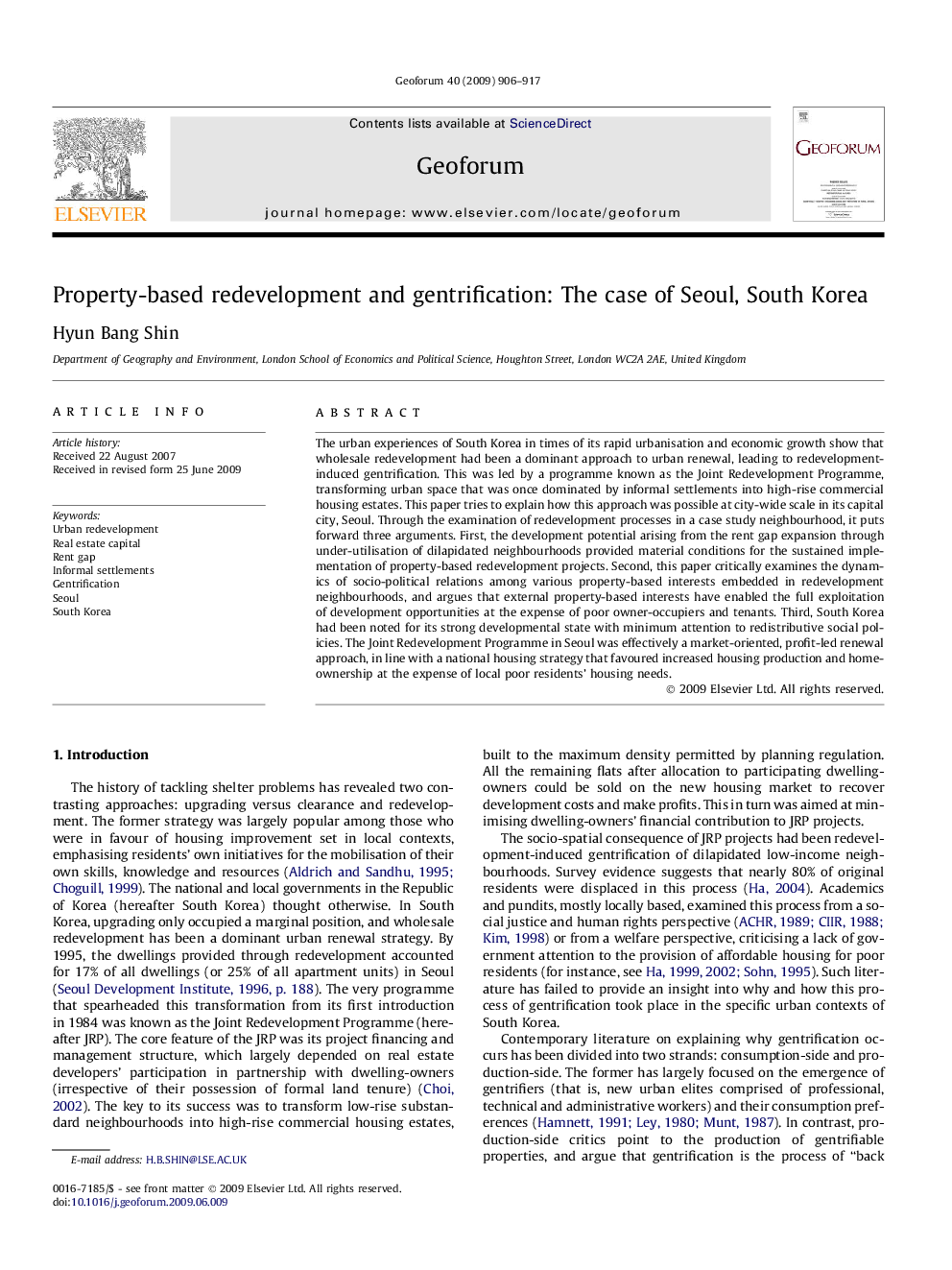| Article ID | Journal | Published Year | Pages | File Type |
|---|---|---|---|---|
| 5074826 | Geoforum | 2009 | 12 Pages |
Abstract
The urban experiences of South Korea in times of its rapid urbanisation and economic growth show that wholesale redevelopment had been a dominant approach to urban renewal, leading to redevelopment-induced gentrification. This was led by a programme known as the Joint Redevelopment Programme, transforming urban space that was once dominated by informal settlements into high-rise commercial housing estates. This paper tries to explain how this approach was possible at city-wide scale in its capital city, Seoul. Through the examination of redevelopment processes in a case study neighbourhood, it puts forward three arguments. First, the development potential arising from the rent gap expansion through under-utilisation of dilapidated neighbourhoods provided material conditions for the sustained implementation of property-based redevelopment projects. Second, this paper critically examines the dynamics of socio-political relations among various property-based interests embedded in redevelopment neighbourhoods, and argues that external property-based interests have enabled the full exploitation of development opportunities at the expense of poor owner-occupiers and tenants. Third, South Korea had been noted for its strong developmental state with minimum attention to redistributive social policies. The Joint Redevelopment Programme in Seoul was effectively a market-oriented, profit-led renewal approach, in line with a national housing strategy that favoured increased housing production and home-ownership at the expense of local poor residents' housing needs.
Related Topics
Social Sciences and Humanities
Economics, Econometrics and Finance
Economics and Econometrics
Authors
Hyun Bang Shin,
